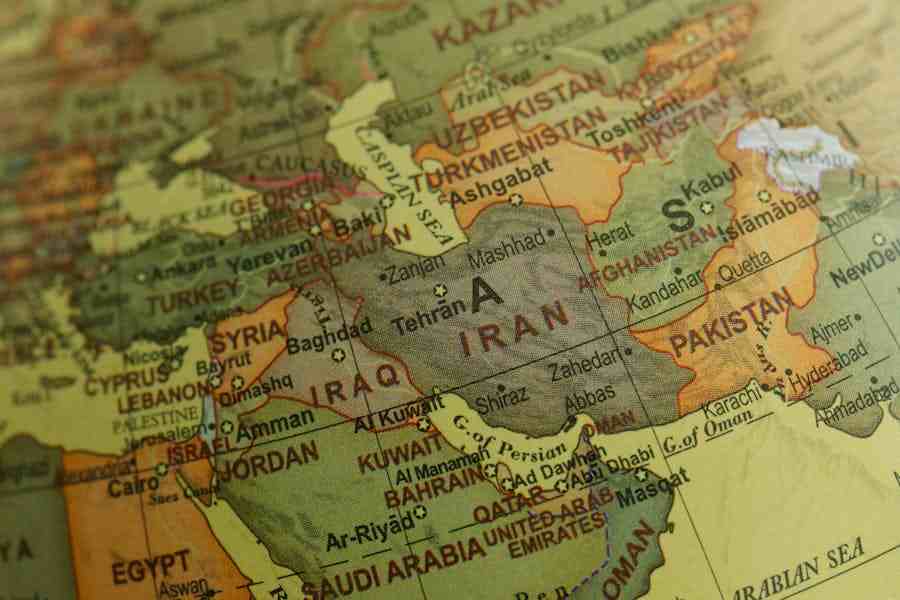
The Iran-Contra Affair, a pivotal moment in U.S. political history, looms large over the presidency of Ronald Reagan. Unfolding in the 1980s, it revealed a complex web of clandestine dealings that blurred the boundaries of diplomacy, legality, and morality. President Reagan’s administration was at the heart of this controversy, facing intense scrutiny and criticism for its involvement in arms sales to Iran and diversion of funds to Nicaraguan Contra rebels. This article delves into the multifaceted reasons behind the criticism directed at Reagan, shedding light on the constitutional, legal, and ethical dimensions of the affair. By unraveling the intricacies of the Iran-Contra scandal, we aim to dissect the complexities of presidential power and accountability in the face of clandestine actions.
Common Causes For Ronald Reagan Criticized For The Iran-contra Affair
Ronald Reagan faced significant criticism for his role in the Iran-Contra Affair, a result of various interconnected factors. These factors revealed breaches of trust, legality, and ethical standards, painting a complex picture of the affair.
Constitutional Breach: Critics contended that Reagan’s involvement in the Iran-Contra Affair undermined fundamental constitutional principles, particularly the separation of powers. Reagan overstepped his executive authority by authorizing covert operations without congressional approval and circumventing established protocols, violating the checks and balances integral to the U.S. governmental system.
Violation of Laws and Policies: The covert arms sales to Iran and diversion of funds to the Contras contravened both domestic and international laws. The Boland Amendment expressly prohibited U.S. assistance to the Contras, yet Reagan’s administration orchestrated a convoluted scheme to fund their activities. Moreover, the arms sales to Iran violated the Arms Export Control Act and breached longstanding U.S. policies against negotiating with terrorist entities.
Damage to U.S. Credibility: Reagan’s involvement in covert dealings tarnished America’s global reputation and credibility. The revelation of secret arms sales to Iran, perceived as state sponsorship of terrorism, undermined U.S. efforts to combat extremism and promote stability in the Middle East. Additionally, the administration’s covert actions contradicted its public stance on ethical foreign policy, eroding trust in American leadership and diplomatic initiatives.
Lack of Accountability and Oversight: Critics decried Reagan’s administration’s lack of accountability and oversight, highlighting a culture of secrecy and impunity. The covert operations allowed key officials to operate with minimal scrutiny, evading congressional oversight and public scrutiny. This lack of transparency facilitated illegal activities and shielded those responsible from appropriate consequences.
Contradictions in Reagan’s Statements: Reagan’s public statements regarding the Iran-Contra Affair were perceived as inconsistent and evasive, further fueling criticism. Initially denying any knowledge of the operations, Reagan admitted to authorizing them but claimed ignorance of the specifics. Such contradictions raised doubts about Reagan’s credibility and transparency, reinforcing perceptions of a presidency mired in deception and misconduct.
Background Of U.S. relations With Iran And Nicaragua In The 1980s
In the 1980s, the United States was entangled in complex relationships with Iran and Nicaragua, shaped by geopolitical considerations, ideological conflicts, and regional dynamics.
Iran-U.S. Relations:
Before the Iranian Revolution of 1979, the United States maintained close ties with Iran under the leadership of Mohammad Reza Shah Pahlavi. The Shah’s regime was seen as a key ally in the Middle East, providing stability and serving U.S. interests in the region, particularly in containing Soviet influence. However, the revolution led to the rise of Ayatollah Ruhollah Khomeini and the establishment of an Islamic Republic, fundamentally altering Iran’s relationship with the United States. The storming of the U.S. Embassy in Tehran and the subsequent hostage crisis severely strained bilateral relations, leading to diplomatic isolation and economic sanctions against Iran.
Nicaragua-U.S. Relations:
In Nicaragua, the Sandinista National Liberation Front (FSLN) overthrew the Somoza dictatorship in 1979, establishing a leftist revolutionary government. The Sandinistas’ close ties with Cuba and the Soviet Union, as well as their implementation of socialist policies, alarmed U.S. policymakers. The Reagan administration viewed the Sandinista government as threatening regional stability and U.S. interests in Latin America. In response, Reagan sought to support anti-Sandinista forces, known as the Contras, who waged a guerrilla insurgency against the Nicaraguan government.
Iran-Iraq War:
Against the backdrop of strained U.S.-Iran relations, the Iran-Iraq War (1980-1988) further complicated the regional landscape. Iraq, under the leadership of Saddam Hussein, launched a military invasion of Iran, triggering a protracted and bloody conflict. The United States, wary of both Iranian expansionism and the spread of Islamic fundamentalism, adopted a policy of pragmatic engagement, providing military support to Iraq while also exploring avenues for dialogue with Iran.
Covert Operations and Proxy Warfare:
In this volatile geopolitical environment, the Reagan administration pursued covert operations and proxy warfare as part of its broader strategy to counter perceived threats to U.S. interests. These operations included covert efforts to arm the Contras in Nicaragua and explore diplomatic channels with Iran, often conducted through intermediaries and with limited congressional oversight.
The Iran-Contra Affair Unveiled
The Iran-Contra Affair, a clandestine and controversial episode in U.S. history, came to light in the mid-1980s. It revealed a convoluted web of covert operations and ethical dilemmas.
The Iran-Contra Affair involved two interrelated clandestine operations. First, the Reagan administration covertly facilitated the sale of arms to Iran, despite an arms embargo, to secure the release of American hostages held by Iranian-backed groups in Lebanon. Second, proceeds from these arms sales were diverted to fund the Contras, anti-Sandinista rebels in Nicaragua, despite congressional restrictions on such assistance, notably the Boland Amendment.
The affair initially came to public attention in November 1986 when a Lebanese newspaper exposed the U.S. arms sales to Iran. This revelation sparked a cascade of investigations and media scrutiny, ultimately unraveling the broader Iran-Contra scheme. Congressional hearings, led by committees such as the Tower Commission and the Iran-Contra Congressional Committees, sought to uncover the extent of the administration’s involvement and the legality of its actions.
The Iran-Contra Affair raised significant legal and ethical questions about the conduct of U.S. officials and the limits of executive power. Critics argued that the Reagan administration had violated laws, including the Arms Export Control Act and the Boland Amendment, which prohibited U.S. assistance to the Contras. Moreover, the covert operations raised ethical concerns about transparency, accountability, and foreign policy manipulation for domestic political purposes.
The revelation of the Iran-Contra Affair had far-reaching consequences, both domestically and internationally. The affair damaged the Reagan administration’s credibility and reputation, losing public trust in the executive branch. It also strained U.S. relations with key allies and undermined America’s moral authority on the global stage. Furthermore, the affair triggered a series of investigations, indictments, and convictions, including those of high-ranking officials such as National Security Advisor John Poindexter and Lieutenant Colonel Oliver North.
The Iran-Contra Affair left a lasting imprint on American politics and foreign policy, serving as a cautionary tale about the dangers of unchecked executive power and the importance of congressional oversight. It underscored the need for transparency, accountability, and adherence to the rule of law in U.S. foreign affairs. Moreover, it prompted debates about the appropriate balance between national security imperatives and respect for democratic principles in pursuing American interests abroad.
Reagan’s Defense And Response
Ronald Reagan’s response to the Iran-Contra Affair was characterized by denial, acknowledgment of mistakes, and attempts to mitigate the political fallout.
- Denial of Direct Involvement: Initially, Reagan denied direct knowledge or involvement in the Iran-Contra operations. He portrayed himself as unaware of the specifics of the covert activities, attributing them to overzealous subordinates operating without authorization. Reagan’s assertions of ignorance aimed to distance himself from wrongdoing and shield his presidency from direct blame.
- Assertion of National Security Interests: As details of the Iran-Contra Affair emerged, Reagan sought to justify the administration’s actions by emphasizing national security imperatives. He portrayed the arms sales to Iran as a pragmatic effort to secure the release of American hostages held in Lebanon, framing them as a necessary concession in pursuit of broader geopolitical objectives. Reagan emphasized international relations’ complex and volatile nature, portraying the administration’s decisions as driven by strategic considerations rather than political expediency.
- Apologies and Admissions of Mistakes: Despite maintaining his stance of plausible deniability, Reagan eventually acknowledged errors and lapses in judgment regarding the Iran-Contra Affair. In a televised address to the nation in March 1987, Reagan accepted responsibility for the affair, admitting that his administration’s actions had violated the law and breached ethical standards. He expressed regret for the consequences of the affair and pledged to cooperate fully with ongoing investigations, signaling a willingness to confront the scandal head-on and address its ramifications.
- Legal and Political Maneuvering: Throughout the aftermath of the Iran-Contra Affair, Reagan and his administration engaged in legal and political maneuvering to contain the damage and protect Reagan’s legacy. This included efforts to shield key officials from criminal prosecution, assert executive privilege to withhold information from Congress and shape public perception through strategic communication and media management. Despite intense scrutiny and criticism, Reagan remained steadfast in defending his presidency and preserving his reputation as a champion of conservative ideals and American exceptionalism.
Warping UP
Ronald Reagan’s response to the Iran-Contra Affair ranged from denial of direct involvement to acknowledgment of mistakes and attempts to justify actions in the name of national security. While initially distancing himself, Reagan ultimately accepted responsibility and regretted the affair’s consequences. Despite legal and political maneuvering, the scandal tarnished Reagan’s presidency, highlighting the complexities of executive power and the importance of accountability in U.S. governance. The Iran-Contra Affair is a cautionary tale about the limits of presidential authority and the need for transparency and adherence to the rule of law in American democracy.





